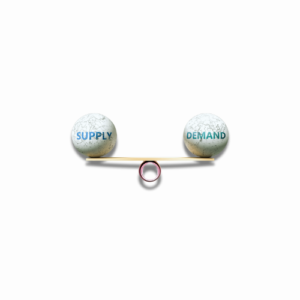WHY DO WE TRADE?
The way we spend our lives shapes them; we constantly engage with the environment and express ourselves in unique ways. Every action we take is an expression of who we are at any given time. In order to satisfy our needs, wants, desires, and objectives, we express ourselves. The majority of people today are able to focus their energies on meeting demands more than just those for food and shelter, but doing so costs money. With the help of money, we can engage in a system of exchange whereby people with highly specialised means of self-expression can exchange commodities and services.
Due to the fact that money is a symbol of our ability to communicate who we are as people, it has come to reflect our needs. Every action is a kind of self-expression, and in our culture, there are very few avenues for an individual to express themselves without financial means. Therefore, money is a key symbol of freedom of speech in culture.
People who express themselves in different ways build a very dense web of interdependencies. People must come to an agreement over the worth of the commodities and services before they may exchange them. According to me, “value” is the proportionate amount of significance or possibility that anything possesses in meeting a demand.

The basic economic law of supply and demand will then decide the real price at which commodities and services are traded. Psychologically speaking, human fear and greed are the foundation of the law of supply and demand. People will be driven to behave or not act based on their needs in connection to the perceived external conditions by both fear and greed. The cost of goods and services will depend on the needs of the customer and how confident they are in their capacity to meet those needs. Their view of the availability of the products and services they require is implied in that belief.
The price of products and services will vary according to the relative level of security or insecurity that the general public is experiencing at any one time in any system of interaction based on personal anxieties of scarcity or lack. All those who depend on others to meet needs they are unable to meet on their own face financial danger as a result of these variable pricing. What does risk mean? Risk is the potential for a net loss of one’s own resources (money, energy, etc.) when pursuing or exchanging something in order to satisfy a need.
For those who are prepared to take on the risk that comes with price volatility, fluctuating prices can present opportunities.